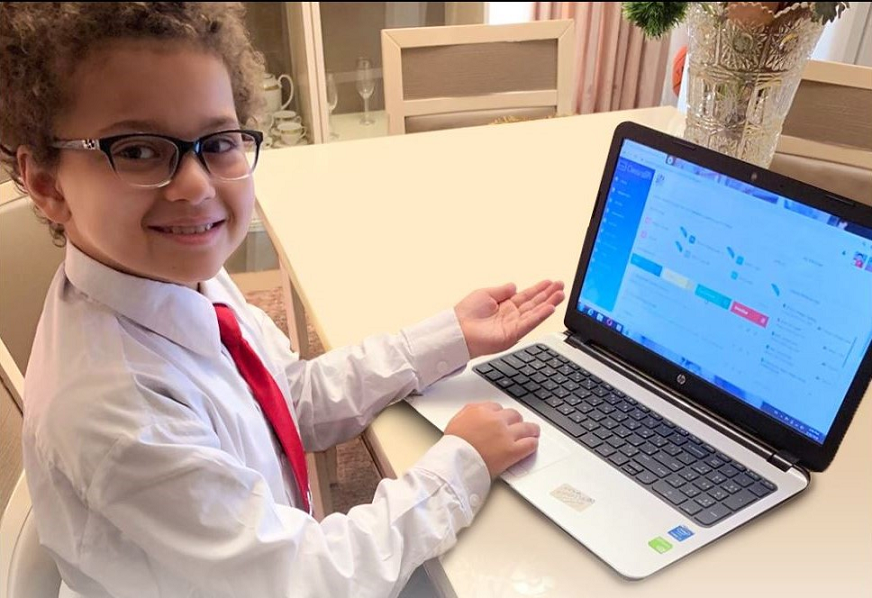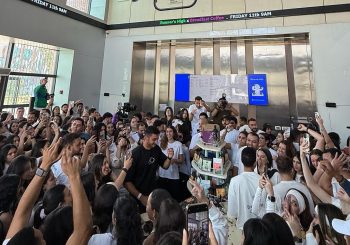As countries take steps to implement safety measures in light of the COVID-19 outbreak, schools and educational institutions worldwide are finding ways to adapt their teaching methods to the needs of their students at home.
More than ever before, circumstances are proving that developing reliable virtual means of work and study are integral in today’s world.
Workplaces and educational institutions had already been dabbling in work with platforms that are accessible outside of schools and offices, but the unexpected and devastating arrival of the coronavirus pandemic has proven the urgency of applying such technology on a larger scale.
Among those leading the charge for schools in Egypt is GEMS Education, an international education company which recently launched its e-learning platform, Phoenix Classroom. Creating an engaging and rich experience online, the platform offers a variety of online sessions on a daily basis for the over 6000 students it serves in Egypt.
Since GEMS Education started their Virtual Learning Environment, 67,266 online interactive sessions have been delivered and 10,998 assignments have been completed.
GEMS has also used its e-learning platform to go further than the core curriculum by providing opportunities for students to engage in enrichment programs that allow students to benefit from their spare time as well.
“We invest heavily in educational and learning technologies because we are committed to our mission: making quality education accessible to every child, anywhere,” GEMS told Egyptian Streets.
The largest K-12 private education company in the world, GEMS Education is working with over 200,000 students worldwide, operating in Egypt, the UK, Switzerland, India, and more. Through a variety of projects and initiatives, their goal is to find novel ways to effectively equip children for life after school.
The four pillars that inform GEMS Education’s various initiatives – many of which are weaved seamlessly into the students’ curricula – are to build a solid core curriculum, give students tools that allow them to think critically and creatively, help students build the character traits and get the visibility that will guide them through their life after school, and to do all of this in a technologically advanced environment.
Virtual platforms are a key area of focus for the company, and their technology is being used across their schools around the world. This includes remote learning platforms like Phoenix Classroom, as well as virtual reality technology for class education.
Simulating a normal school day, Phoenix Classrooms’ sessions are timetabled and structured in a way that is familiar to students. Subjects from inside and outside the core curriculum, as well as national school subjects are live streamed in sessions for the students to benefit from.

“Through different exclusive platforms we provide our students and parents with accounts, where parents can monitor and supervise their children’s attendance, attainment, and progress through academic reports,” GEMS explain.
And indeed, attendance of students in classes on Phoenix Classroom has been at 80%, higher than the usual physical attendance, with a particular spike in the attendance of secondary students.
Many experts and commentators have suggested that even if social distancing efforts succeed in impeding the spread of COVID-19, and even once a vaccine or cure is discovered, the world will not go back to the normal it once knew.
As schools, universities have sent their students home, the question is posed as to whether aspects of this new order will persist in a post-COVID-19 world. Through this change, resources such as time and fuel could be saved, and learning could be made more accessible and more flexible.
It remains to be seen how schools, universities, and businesses around the world will respond to the widespread use of virtual platforms, but initiatives like this one may play a role in making a lasting change to the way we look at education after the threat of COVID-19 is eliminated.







Comments (0)